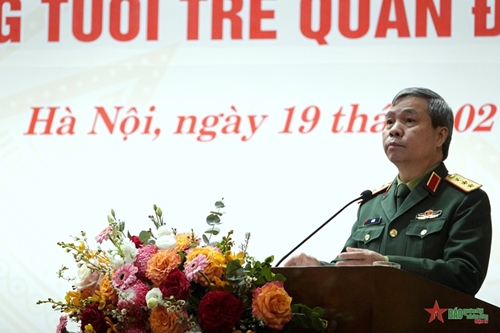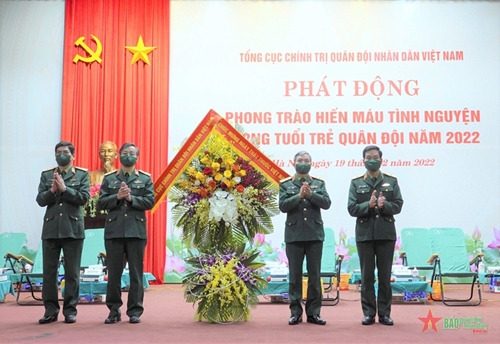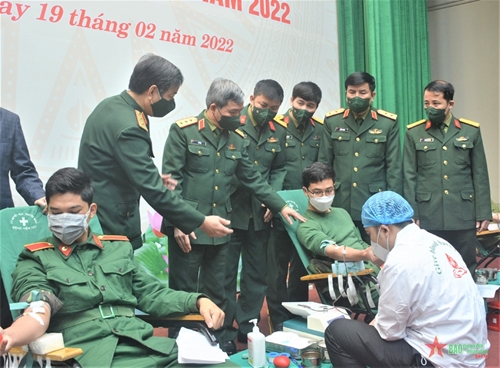The event was chaired by GDP’s Deputy Chief Senior Lieutenant General Do Can and attended by Secretary of the Ho Chi Minh Communist Youth Union Central Committee and President of the Vietnamese Students’ Association Nguyen Minh Triet, together with over 700 MMU’s youths.
Over the past time, the blood donation drive has been implemented and expanded, showing military youths’ pioneering role and responsibility towards the community.
    |
 |
|
General Can addresses the event. |
Especially, military units’ chains-of-command have always attached much importance to the blood donation activities in line with task performance, contributing to treating thousands of officers, soldiers and people.
Reportedly, in 2005, nearly 16,400 blood units were collected. The number increased to more than 35,800 in 2015 and nearly 52,600 in 2021. Among them, the MMU has run the campaign for 22 consecutive years with over 30,800 blood units collected.
Last year alone, the youths in the whole military donated nearly 50,000 blood units so as to ease blood shortage for treatment at hospitals inside and outside the military, especially amid the complicated developments of the COVID-19 pandemic.
    |
 |
|
General Can congratulating MMU on the occasion of the Vietnamese Doctors' Day (February 27) |
Addressing the event, General Can hailed the MMU and other military schools, the Department of Military Medicine, military hospitals, and the Military Youth Advisory Board for overcoming difficulties to launch blood donation movements, spreading the noble virtues of Uncle Ho’s soldiers.
During the launching ceremony, General Can requested military units to embrace the Defense Minister’s Directive No.39, issued on March 27, 2009, on blood donation in military; while further promoting information dissemination on the task in the whole military.
    |
 |
|
General Can and delegates encouraging troops participating in voluntary blood donation |
Meanwhile, military hospitals and medical clinics should actively prepare their blood donation plans, have appropriate policies for blood donators, increasingly invest in facilities, and improve staff’s competence.
The Department of Military Medicine was asked to regularly check military hospitals and medical clinics to seriously implement regulations on blood transfusions and blood storage.
    |
 |
|
MMU's youths join the program. |
At the same time, the GDP’s Military Youth Advisory Board is in charge of gathering other agencies inside and outside the military to boost the blood donation movement among youths with numerous innovative and creative dissemination methods, and promptly commend outstanding collectives and individuals on this work.
Translated by Minh Anh